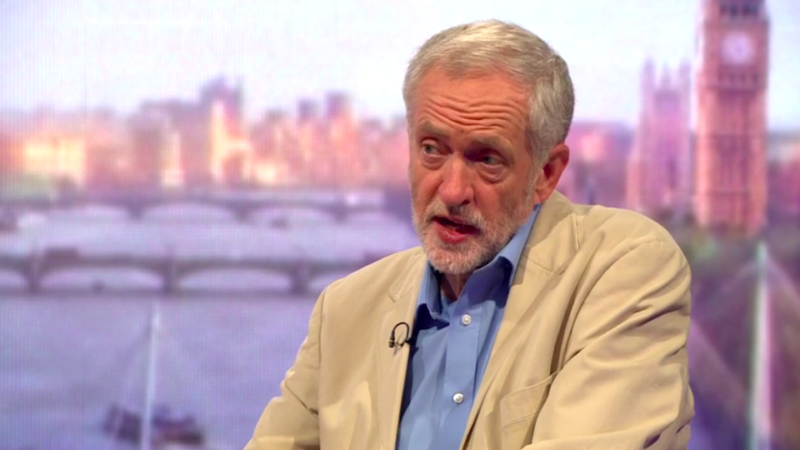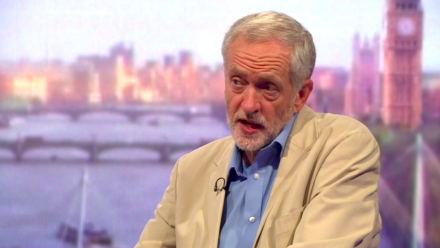
Jeremy Corbyn has said he would welcome “great talents” from all parts of the Labour party – including the Blairite wing – into his shadow cabinet if he becomes leader.

In an interview with the Observer, the MP for Islington North says that he wants to have a “big tent”, including so-called Blairites and Brownites in his team. “Of course there are differences of opinion and I have to be big enough to accommodate those differences of opinion and I understand that”, he says.
When asked whether that included leadership rival Liz Kendall, he said
“Yes. I want people to come in. There are people with great talents and, OK, people do have political differences and there is nothing wrong in having those differences. Now it may be that there will be people who do not want anything to do with this election but I hope they would recognise that party members have put an enormous amount of time and effort into this whole election debate and I think that should be recognised.”
However, Kendall has previously said she wouldn’t serve in a Corbyn shadow cabinet. There are also reports in the Sunday Times today that eight shadow ministers have allegedly said they wouldn’t serve in a Corbyn shadow cabinet.
The paper has reported that shadow chancellor Chris Leslie, shadow defence minister Vernon Coaker, shadow communities secretary Emma Reynolds and shadow chief secretary to the Treasury Shabana Mahmood wouldn’t serve under Corbyn. Neil Kinnock, former Labour leader, has warned against a Corbyn victory, after offering his support to Andy Burnham.
This comes as Corbyn came ahead of his three other leadership contenders in Constituency Labour Party (CLP) nominations. The final list was confirmed on Saturday:
Corbyn 152, Burnham 111, Cooper 106 and Kendall 18.
When unions, MEPs and affiliated organisations nominations’ are included, the figures read:
Corbyn 162, Cooper’s 121, Burnham 118 and Liz Kendall 21
Corbyn’s success continues as he has outlined his plan for the Labour party. He told the Observer this includes: full-scale renationalisation, brining public services such as the railways and the Royal Mail back into public ownership, higher levels of public investment to encourage economic growth, ensuring people are paid more in both the public and private sector – which includes ending the public sector pay freeze, repealing anti-trade union laws and strengthening collective bargaining rights, introducing a fully elected House of Lords, leaving NATO and reforming the royal prerogative to make sure the prime minister must get sign off from parliament before going to war.
Corbyn also argued that “this is the most open democratic election the Labour party has ever had, and the participation of young people is quite astonishing.” However, despite his relative success he has warned against paying attention to polls, two of which have put him well ahead of his fellow contenders on first preferences:
“The polls are a bit strange because to be accurate they would have to be done on the actual membership and among registered supporters of the party and they [pollsters] would have to have access to that information which I don’t suppose they have. So we have to be cautious. We are doing very well, and increasingly well on the nomination meetings of constituency parties, some of which are very well attended. But absolutely no predictions. It would be very unwise to do so.”
He also dismissed rumours of widespread entryism as “absolute nonsense”. He notes that support for him comes from “a pretty interesting mix of young people, many of whom have never been involved in any form of politics at any level who are interested in alternatives to austerity and debt, and older people who left the Labour party, mainly over Iraq, who are coming back in…It is people who are serious about their politics and want the Labour party to be able to represent them and they have felt rather unrepresented in the past years.”




More from LabourList
Almost half of Labour members oppose plans to restrict jury trials, poll finds
‘How Labour can finally fix Britain’s 5G problem’
‘The University of the Air – celebrating 60 years of Harold Wilson and Jennie Lee’s vision’